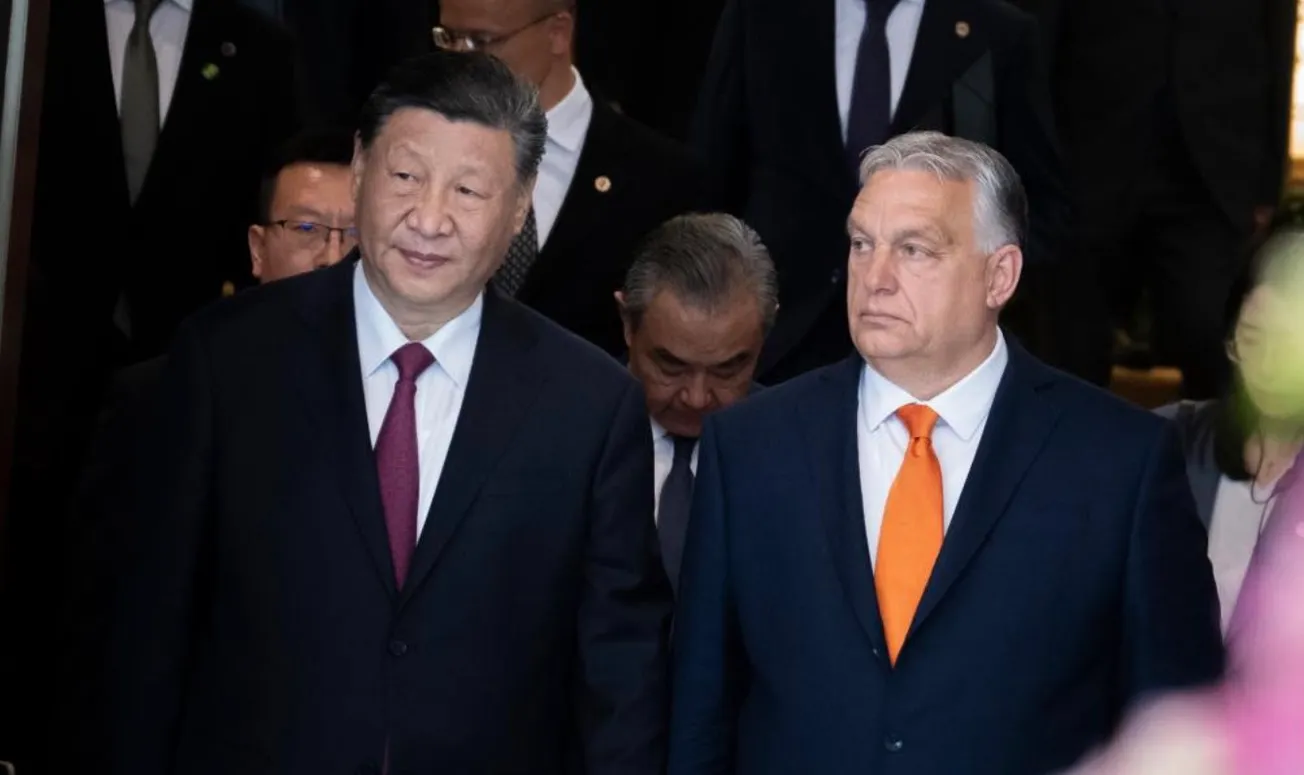China’s Global Times, in an editorial today, “Orbán’s China Visit Highlights the Importance of Dialogue,” praised “the constructive significance” of Hungarian Prime Minister Viktor Orbán’s peace mission visit to Beijing, his July 8 meeting with Chinese President Xi Jinping, and the intermeshing of Orbán’s diplomacy in Kyiv and Moscow with China’s Feb. 24, 2023 plan to end the conflict in Ukraine. After reviewing the improvement of Hungary-China relations, the editorial asserts: “The Ukraine crisis, as the ‘theme’ of Orbán’s whirlwind visit, was the focus of communication between the two sides this time.”
The editors noted: “Orbán briefed the Chinese side on the recent visits to Ukraine and Russia. President Xi expressed appreciation for Orbán’s efforts in promoting the political settlement of the Ukraine crisis, and also stated that the basic propositions of China and Hungary and the direction of their efforts are the same. President Xi emphasized that the current focus is observing the three principles of no expansion of the battlefield, no escalation of fighting, and no fanning by any party of the flames, and called on the international community to create conditions and provide support for the resumption of direct dialogue and negotiation between the two sides.”
Global Times reviewed the extensive efforts China has made on behalf of its 12-point peace plan: “The Chinese side has consistently advocated for peace and dialogue in the Ukraine crisis, encouraging and supporting initiatives and efforts that contribute to easing tensions and achieving peace around the world. China has also been playing a positive role in promoting peace through its own means. This year, Member of the Political Bureau of the CPC Central Committee and Foreign Minister Wang Yi met with Ukrainian Foreign Minister Dmytro Kuleba, Chinese Vice Foreign Minister Sun Weidong met with Ambassador of Ukraine to China Pavlo Riabikin, and held a consultation with Ukraine’s First Deputy Foreign Minister Andrii Sybiha. Li Hui, the special representative of the Chinese government on Eurasian affairs, conducted the second and third rounds of shuttle diplomacy on the Ukraine crisis. In May, China and Brazil jointly issued a six-point consensus on their common understanding of the political settlement of the Ukraine crisis, which received positive responses from more than 100 countries in just half a month.”
The editors conclude: “It is well known that the resolution of the ongoing Ukraine crisis is complex and the start of the peace process can’t be achieved overnight. Despite differing views on Orbán’s shuttle diplomacy, efforts by third parties like China and other countries calling for a ceasefire and promoting communication and dialogue between the conflicting parties are of constructive significance. It has also vividly demonstrated the deepening China-Hungary interaction, which is not only beneficial to both countries and China-EU relations, but also injects positive energy into world peace and development.”



